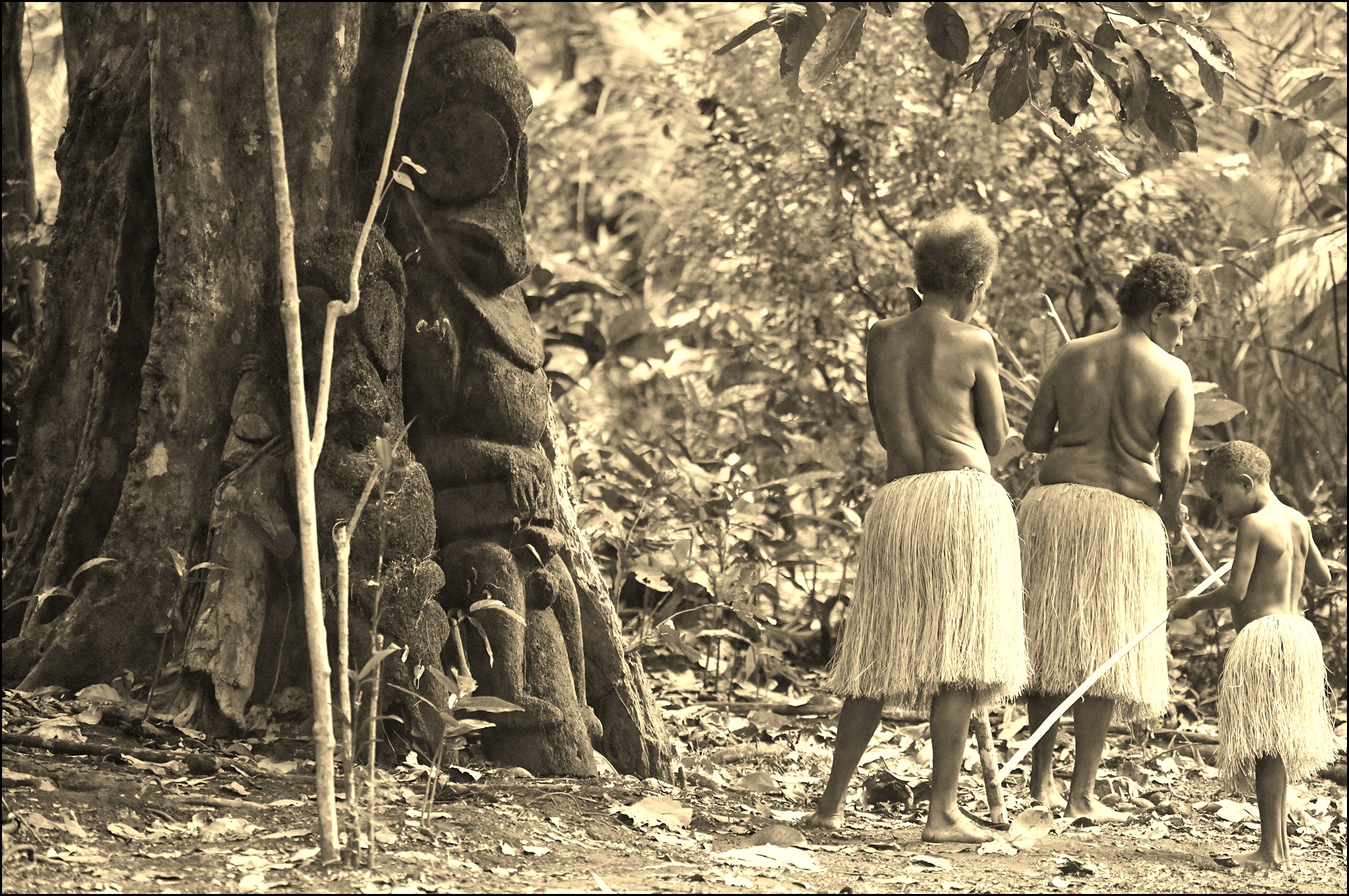
We left the smoking Yasur volcano and the island of Tanna with a fine covering of gritty, volcanic soot all over our decks… 26hrs later we arrived in Ambrym- the island of black sand….and black magic. Sorcery is considered to be strongest on the islands with active volcanoes and Ambrym is revered to be a center for magick…
Our anchorage was a tight little reef-edged lagoon in Olal in the Northern tip of the island. It was surprisingly protected from the lumpy swell and 25 knot south east trade-winds and we were quite happy to sneak in behind the reef and drop anchor in relatively calm waters.
Ambrym was on our agenda because of a unique opportunity to witness some traditional dancing, cooking and ceremonies during a 3 day cultural festival called ‘Back To My Roots’
Most visiting yachts parked around the corner at Nobul, but we were lazily avoiding the daily, 50 minute walk to the festival near Olal, preferring an 8 minute wander through grassy tracks and kava plantations…
A couple of other yachts followed us into the anchorage- it was tight and we made it hard for the two barges that arrived to drop off supplies and collect sacks of copra from the black-soil beach. We got a little nervous when one of the rusty vessels edged upwind between our bows and the reef and we quickly picked up anchor and re-positioned to allow him room to pass behind us on his way out.
Above left; a copra drying hut- a fire is lit inside the drum and the coconut flesh sits on the top drying in the heat.
Above right; the supply ship coming within metres of Tika’s bows (photo credit; SV Alexander) We didn’t much like being downwind of this baby (the reef is only just on the other side of the barge), but the crew were all super friendly, yelling excitedly and waving greetings as they chugged past…
Above right- houses in the village at Olal
Below left- loading sacks of copra onto the supply ferry…
Below right; Ambrym is famous for it’s carved slit drums or tamtams. The festival site was crowded with them and each one had a unique character.
The ‘Back To My Roots’ festival was 3 days of traditional dancing (culminating in the famous ROM dance) music, art and cooking. The performers wore traditional village dress that consists of no more than nambas (penis sheaths) pig tusk necklaces and for the women, grass skirts.
Below right; lunch was included neatly wrapped in a banana leaf- laplap, taro and chicken.
Above left; the huge tamtams or slit-drums are the instrument of both Ambrym and the nearby Malekula islands. Carved from breadfruit trees, there were originally used to send coded messages and have a deep, hollow sound.
Above right; the women and a young girl dancing off on the side of the main performance that was predominately a ceremony about ‘maghe’; the men of the tribe climbing a hierarchy of levels (grades) that determines who will become a chief.
The dances mostly happened with the men huddled together stomping, wailing and singing in a circle around the largest tamtam. The earth would vibrate with the intensity of the dancing and drum-beat.
The local chief went to great lengths to softly explain each dance to us (a celebration of the yam harvest, a tribal war dance, a story of ancestors, spirits and magic and a dance about hunting) but apart from 2-3 very distinct dances, they all seemed quite similar; singing and stomping in a huddle.
The ‘Back To My Roots’ festival was created as a formal way to maintain and nurture ancient traditions and also to offer a glimpse of Ni-Vanuatu culture, ‘kustom’ and village life to visitors. Ambrym is not touristy and, apart from one young family from NZ who were staying in the village, the audience was made up of a group of yachties from 6-7 boats.
The women (and this one gorgeous girl) were positioned off to the side but I was drawn to them- to me they looked proud, straight backed and wise and I would have loved to hang out, weave and chat with them for a day ![]() . I went around to photograph them and immediately a local offered to take me up front on the opposite side off the performance space so that I could shoot some close-up pictures (of the men) without the women getting in the way…..but really I was more interested in them! One got the feeling that these three were the ‘token’ females, off to the side, holding space for the main event- the stomping men.
. I went around to photograph them and immediately a local offered to take me up front on the opposite side off the performance space so that I could shoot some close-up pictures (of the men) without the women getting in the way…..but really I was more interested in them! One got the feeling that these three were the ‘token’ females, off to the side, holding space for the main event- the stomping men.
In Vanuatu, men acquire pigs so they can throw feasts- and gain status in the village. At one time, the challenge was to provide a human for the feast- a valuable offering that would leave the feasters truly indebted to them!
As part of the ceremony, the chiefs and wannabe chiefs killed a pig by taking turns in bashing it between the eyes with a hammer. Jaiya and I couldn’t watch! The poor thing squealed a bit but it wasn’t long before it was silent and being carried out hog-tied to a bamboo pole…
Above; little girl with the elder matriarchs of the village- while dancing, her eyes didn’t leave their feet as she copied the moves (stomps) with perfect timing.
Above right; Chief Sekor’s house- perched on the cliff, high on stilts overlooking Olal lagoon.
Above left and below; another challenge for the chief candidates. They had to climb high up a very rickety, bamboo structure while the rest of the men, sang, danced and hurled coconuts at them from below. Their job was to dodge the coconuts while balancing on the swaying tower. A local later told me that in the old times they used to use guns to shoot at the potential leaders and would, sometimes, hit the target and eliminate a competitor…
Above; near naked coconut dodging on a flimsy platform…
Above; foot stomping
One of my favourite performances (above and below) was reminiscent of some indigenous Australian dances. Depicting various animals, the moves were full of the life and character of each animal.
Above; we moved anchorages around to Nopal on the north-west corner of the island to be with other kid-boats.
Below- Russ and chieftain Sekor
Most Ni-vans speak English as well as at least one local dialect and bislama (a kind of pigeon English that allows Ni-vans to transcend all local dialects and communicate through-out the islands) Many also speak French and a number of other dialects.
The festival was our introduction to the rich, dynamic, graphic tradition of sand drawings (‘sandroing’ in bislama)
There are 180 sand designs that are used to leave messages or depict a legend, dance, ritual, creature, plant or mythological lore. The most elaborate of all the designs are made on Ambrym. The artist starts with a grid or series of squares or rectangles and forms delicate loops and curves in a continuous, meandering line with a finger that does not lift until the work is complete. I could have watched these for hours- it was quite mesmerising to witness these temporary, intricate, mostly symmetrical compositions gracefully emerge out of the black, volcanic surface.
The ni-Vanuatu artistic and ritual tradition and practice of sand drawing is recognised by UNESCO as a ‘masterpiece of the oral and tangible heritage of humanity’
Above left; kids from the village watching the performances.
Below; the festival’s most spectacular performance was the famous Rom dance. This theatrical number combines all elements of the ‘maghe’ (grade-taking) with magic and legendary creatures. The masks worn in the dance have much significance. A man wishing to move up in the village structure must first find someone who owns a mask design and ask to buy it with pigs and cash. Each mask has complicated rules that I didn’t quite understand determining it’s colours and shapes. Once the design has been purchased the buyer invites men to enter his ‘nakamal’(like a village men’s clubhouse) where they practice this dance for days. After a final feast the dancers perform wearing extraordinary costumes – with brightly painted banana-fibre masks and a thick cloak of banana leaves….
Above and below; the chief is cooking a kind of dough made from roasted breadfruit. First the breadfruit is chargrilled on the coals of the open fire, then the inside flesh is kneaded and rolled out with a coconut. Coconut milk is heated and reduced when hot stones are dropped into the bowl and the coconut cream is dribbled onto the dough and served.
Above right; the store at the village in Olal
Below right; the wonderful masks and costumes of the Rom dance.
Above right; Ambrym volcano is a massive, 1900 yr old caldera with twin, active volcanic cones- Mt Benbow and Mt Marum. It is one of the most active volcanoes in the world. Later, we return to Ambrym to hike Mt Murum and peer into a surreal pit of bubbling magma in the crater. But that’s another story!
Rom dancing!
Above right; I just love the eyelashes on this mask!
Above; smoke and cloud over volcanic Ambrym.
Above left; fancy a nibble of some bat? Kai and Russ were both brave enough to try it but Russ was sick that evening! He was not sure if it was the bat or the shots of Kava that caused the illness. The kava grown on the islands of Vanuatu is reputed to be much stronger than the Fijian kava that we had previously sampled.
Above left; Yachties gratefully accepting a lift back to the anchorage…
Above right; with chief Sekor
Above left; walking back to the village with the chief and fellow yachties…
Above; Our anchorage tucked in behind the reef at Olal
Below; a 2 minute snippet of the ‘Bck to My Roots’ festival…
Next Post; visits from loved ones, scuba diving the Coolidge, horse riding, bat caves and fresh water swimming holes at Santo Esprito…
This entry was posted in The Sail.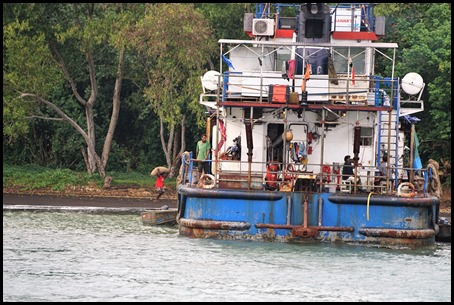
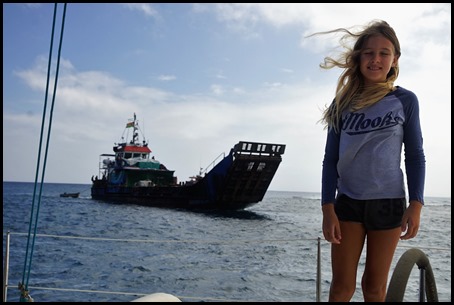
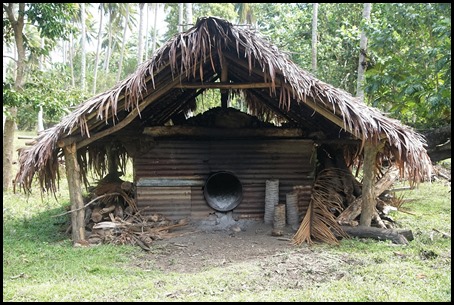
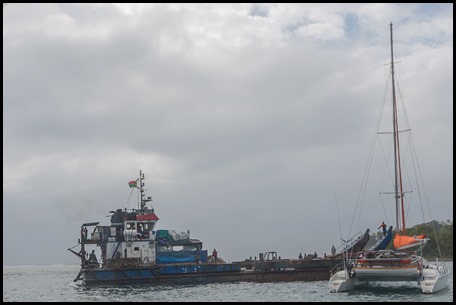
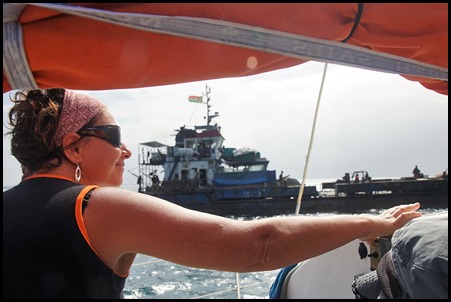
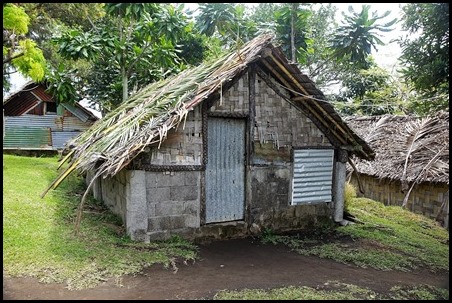
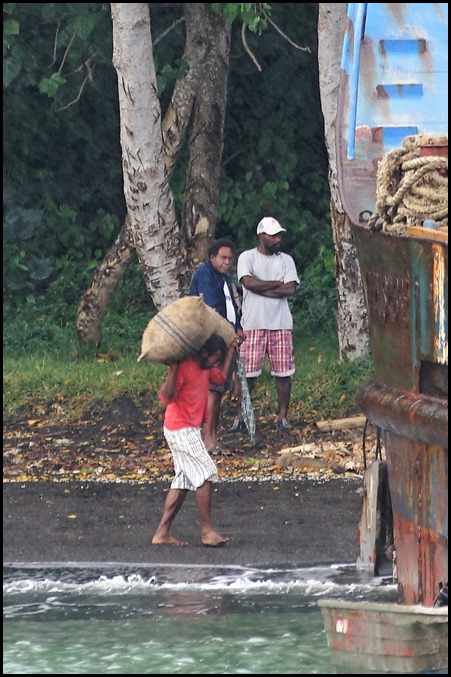
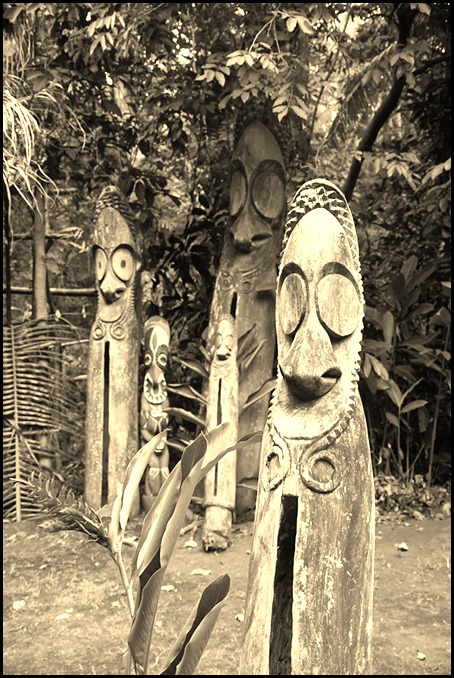
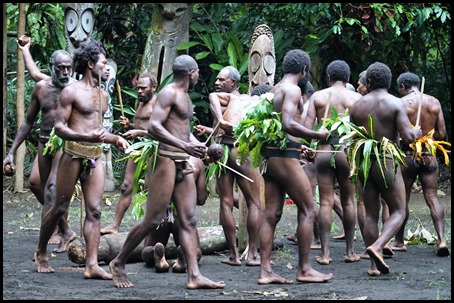
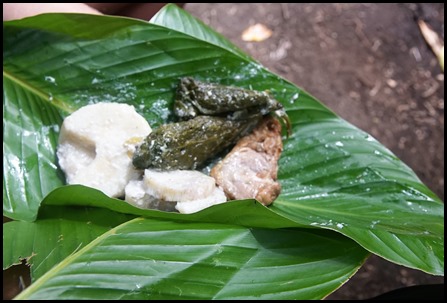
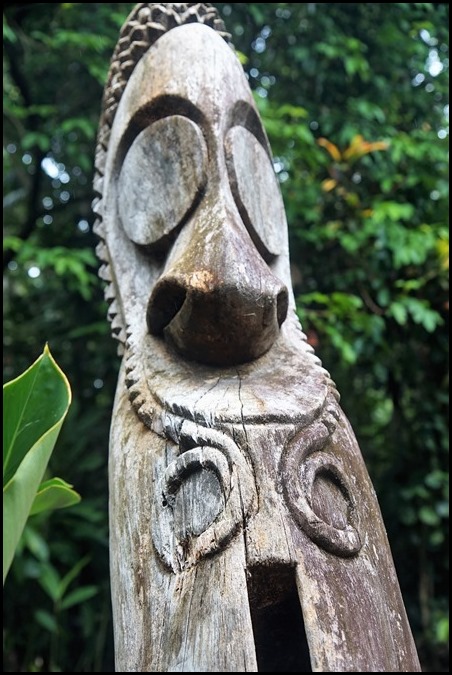
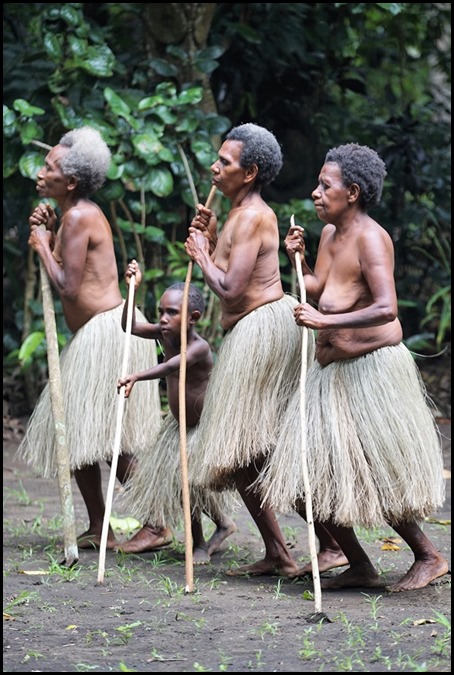
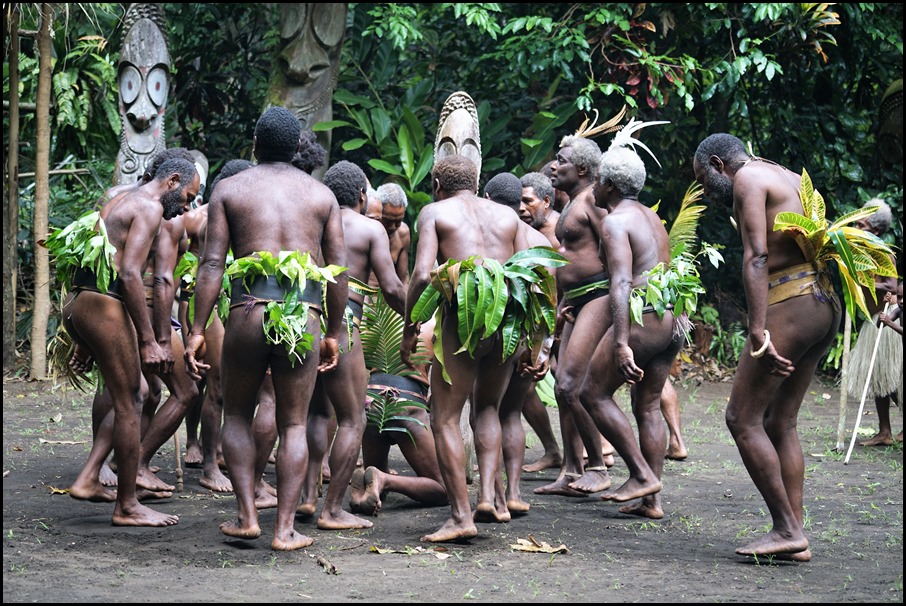
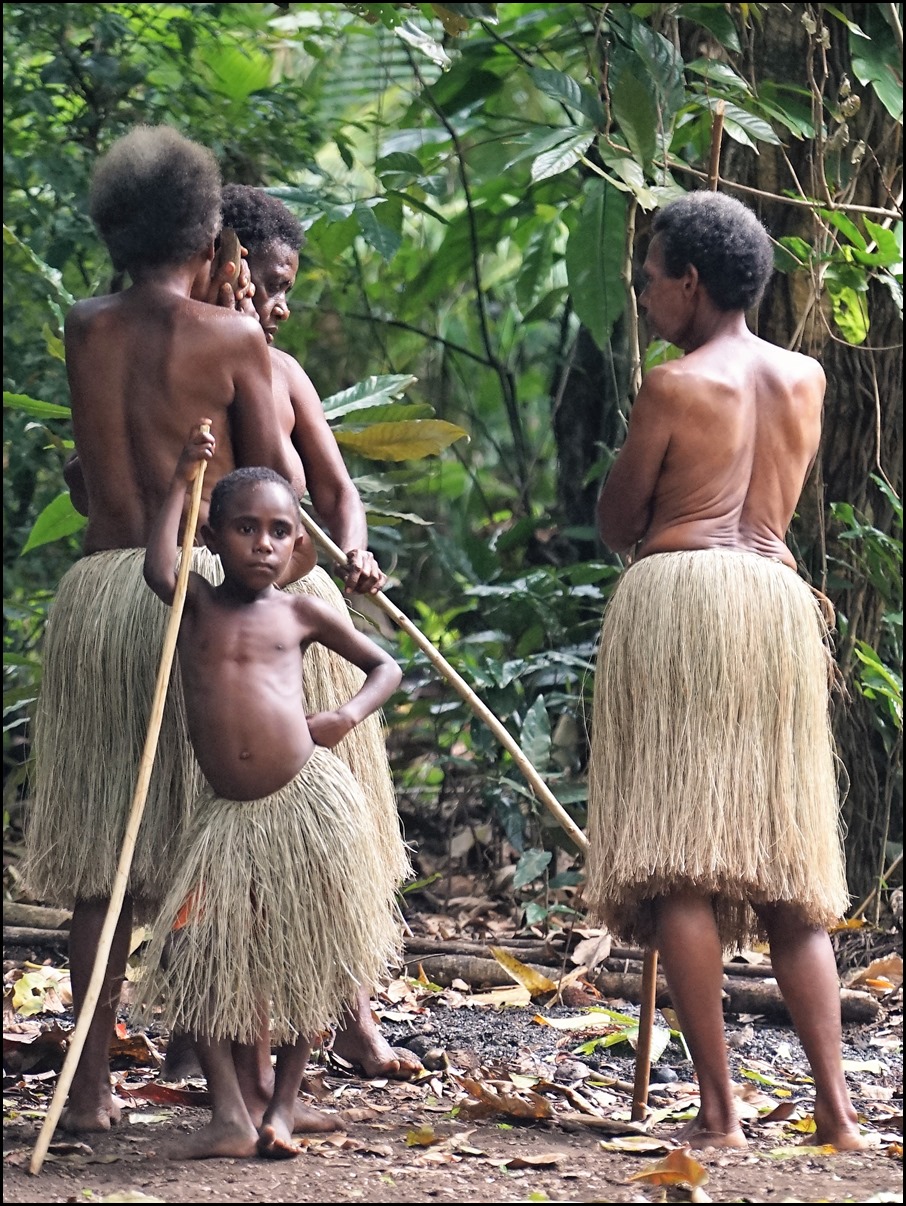
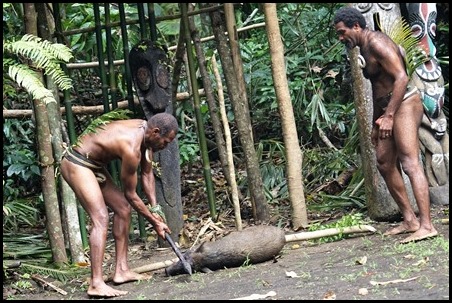
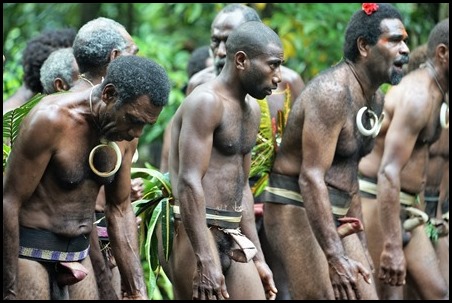
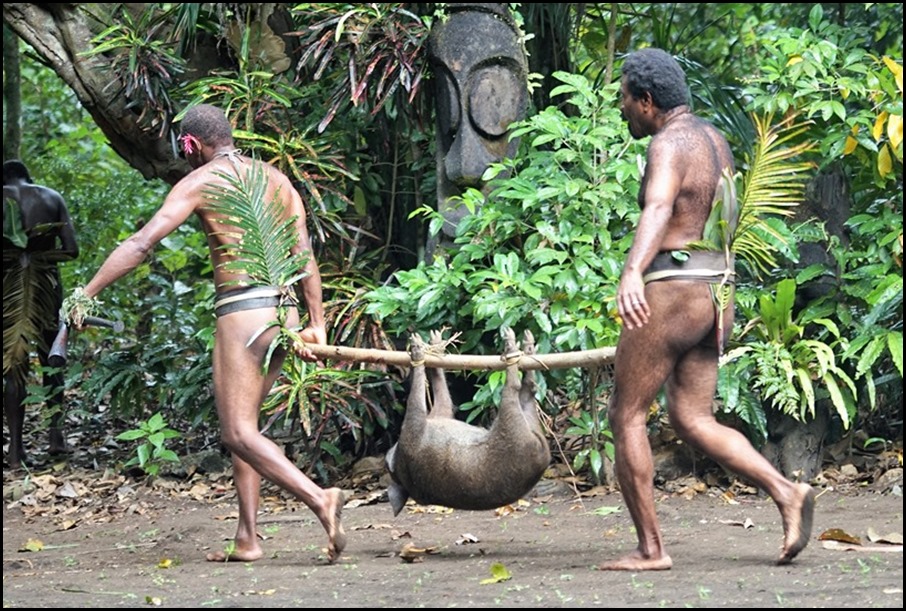
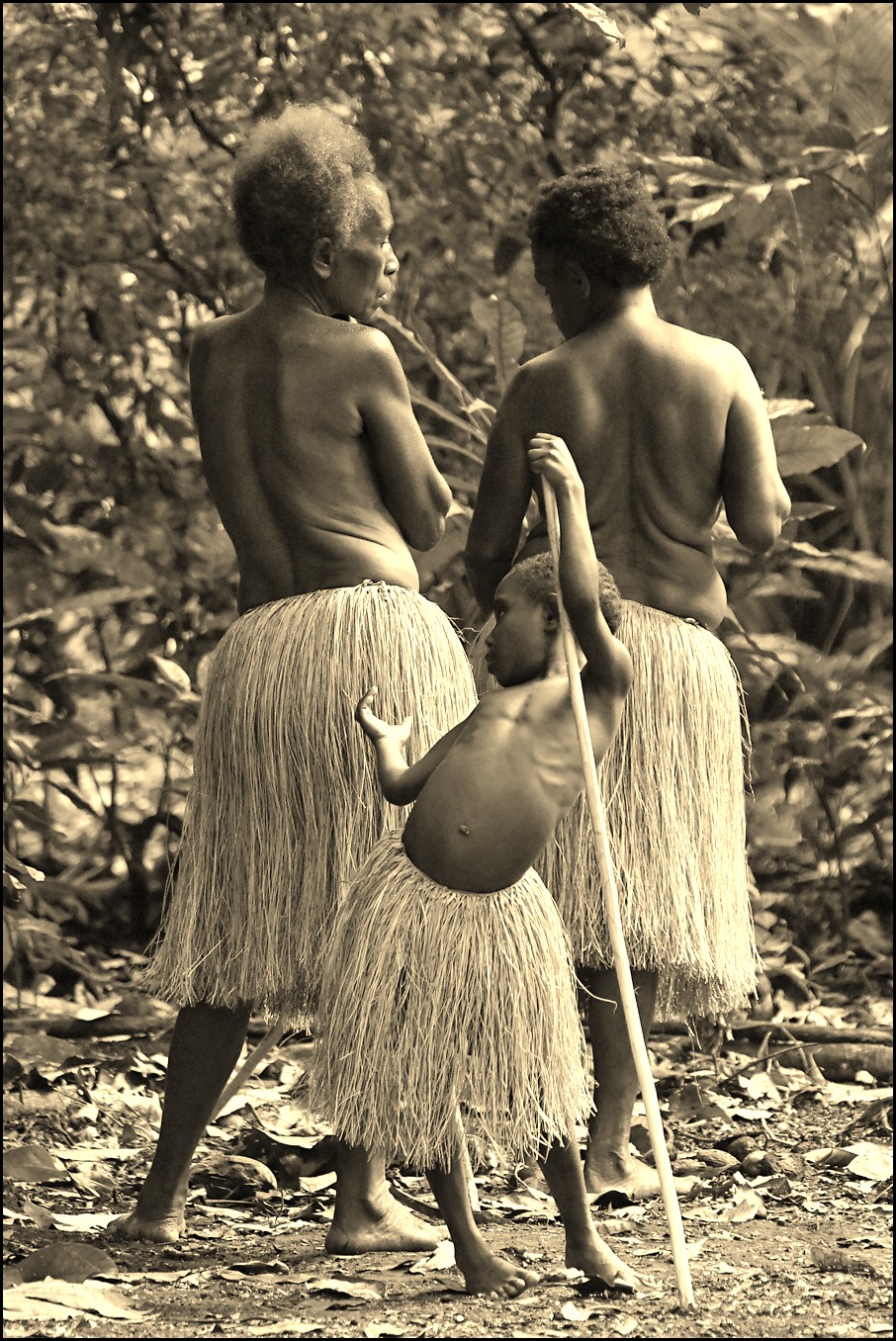
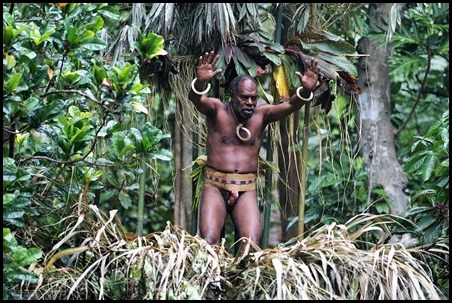
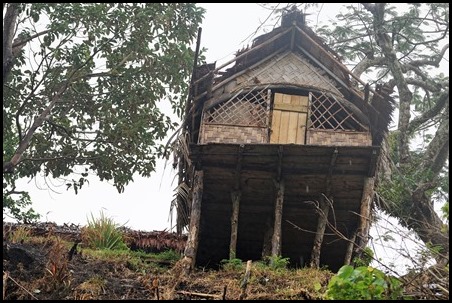
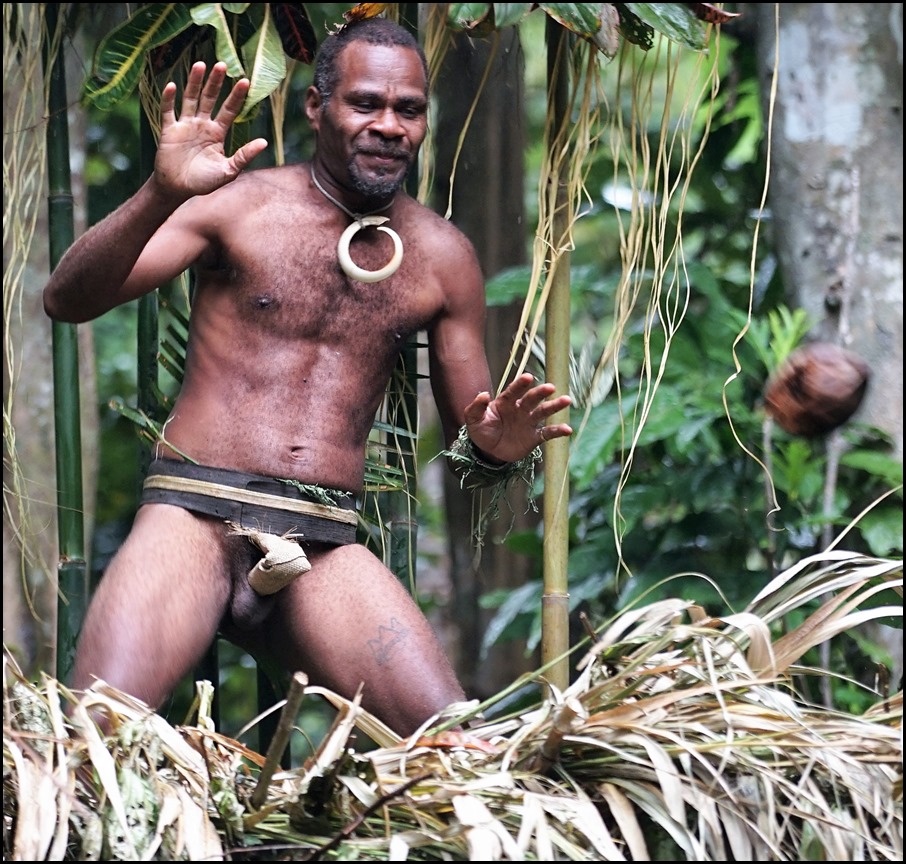
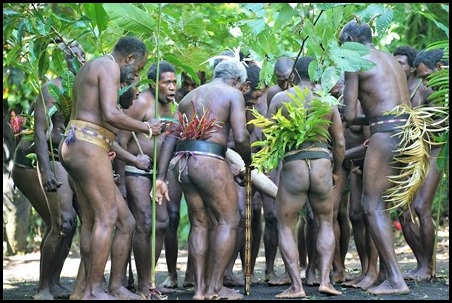
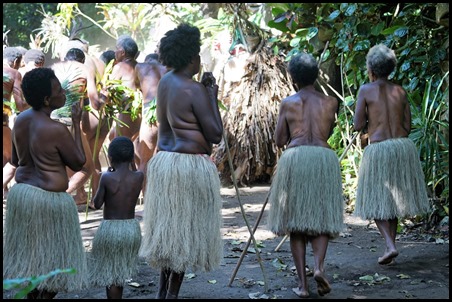
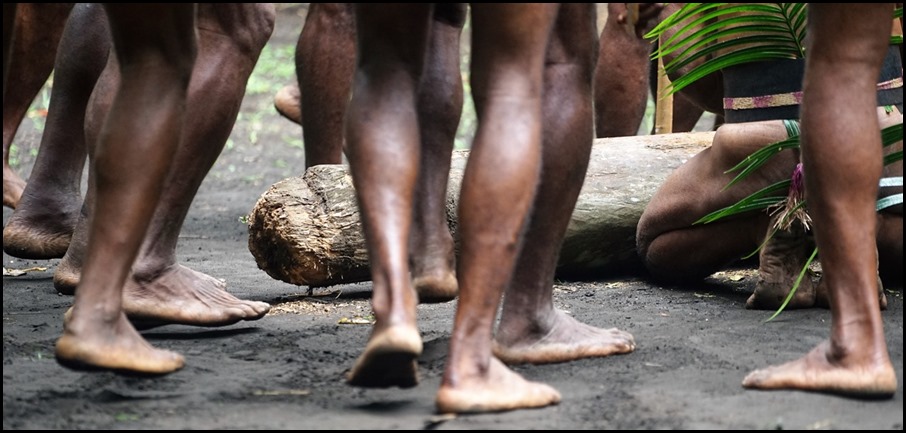
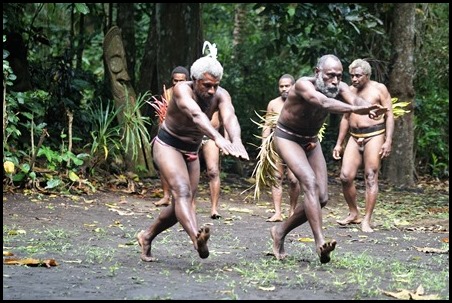
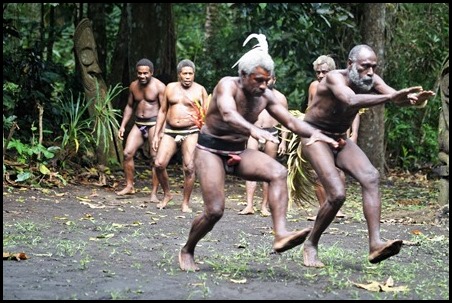
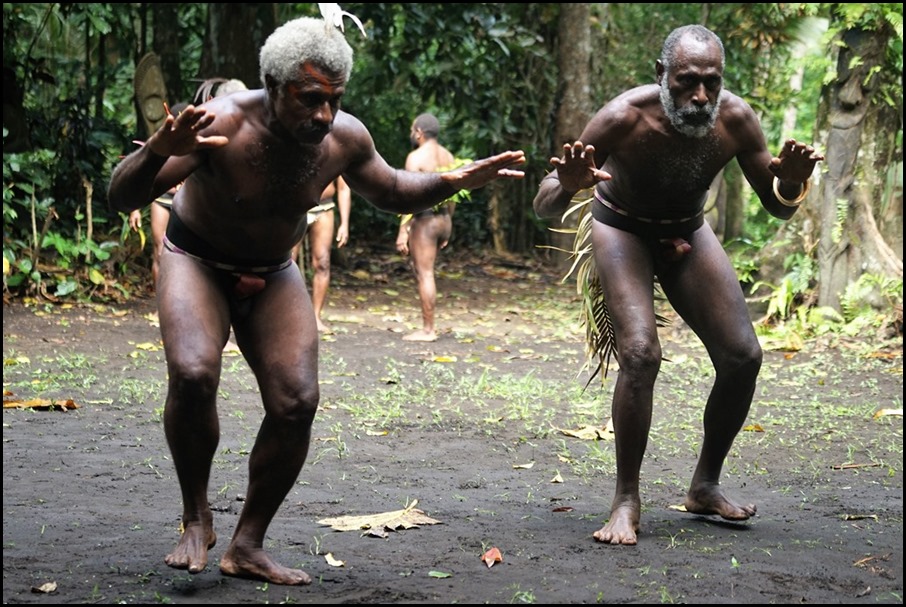
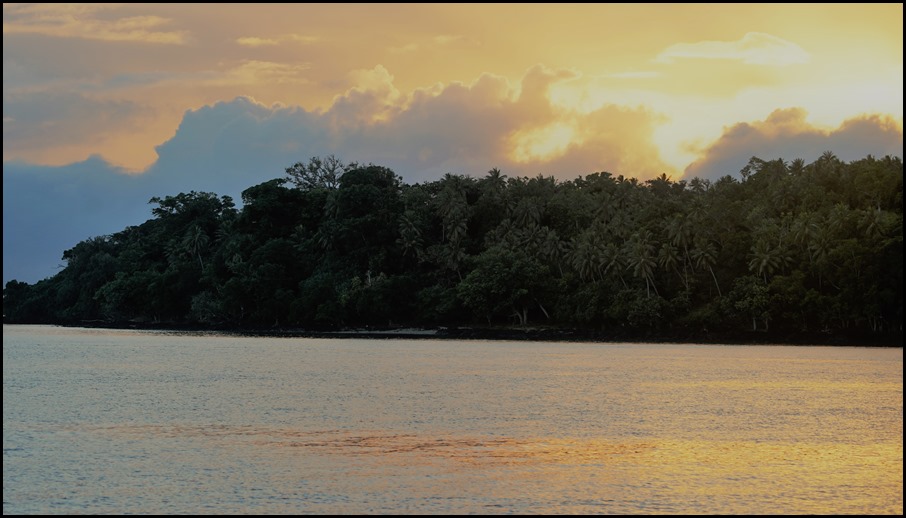
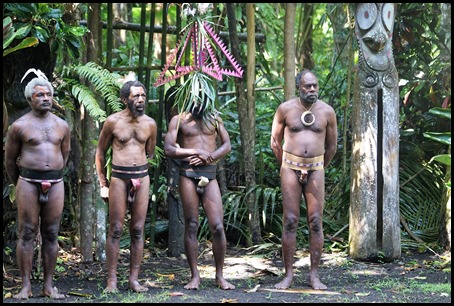
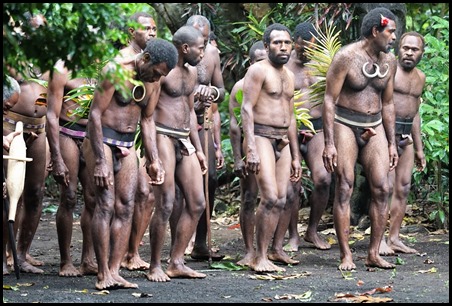
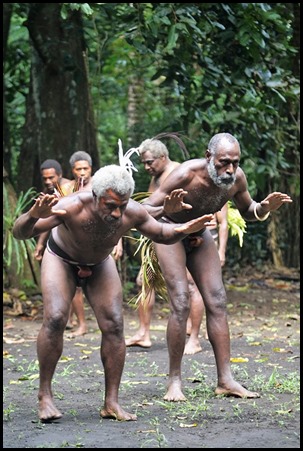
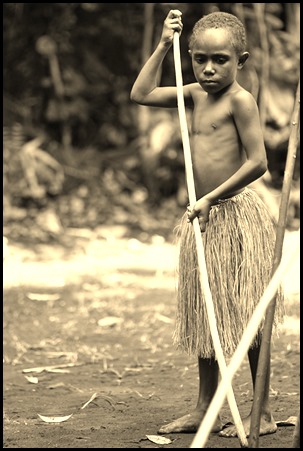
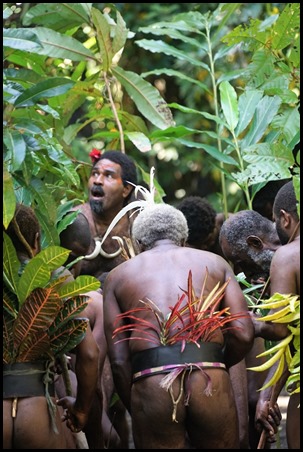
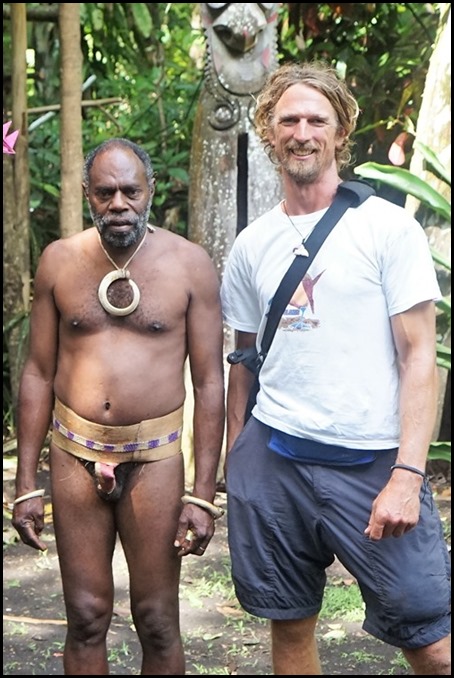
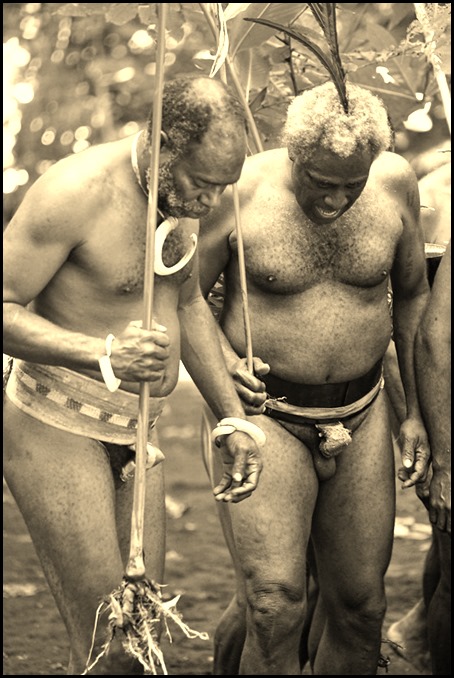
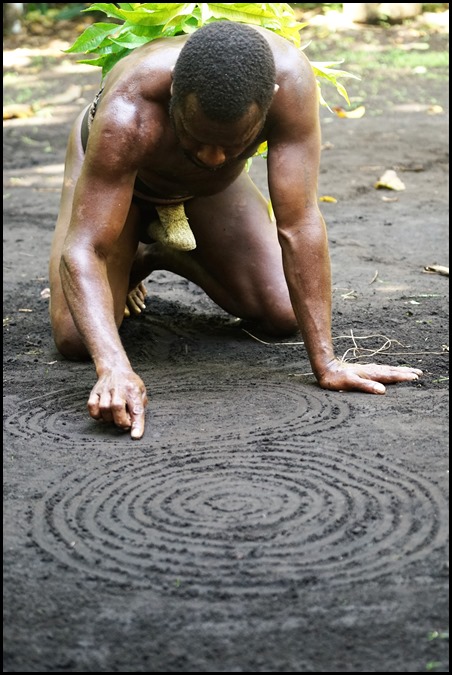
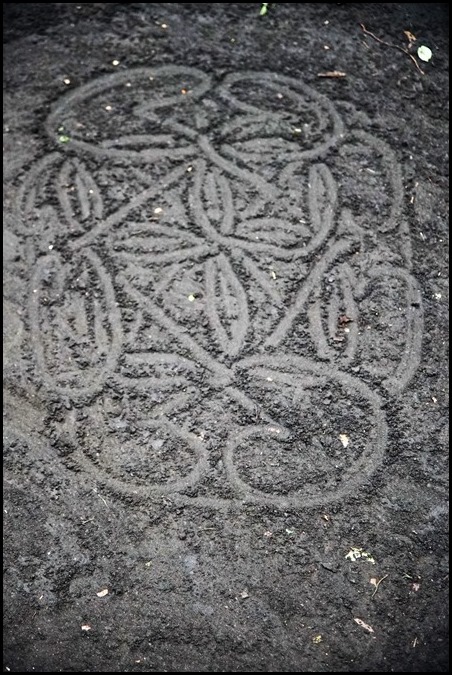
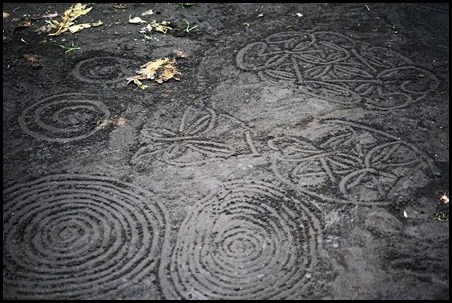
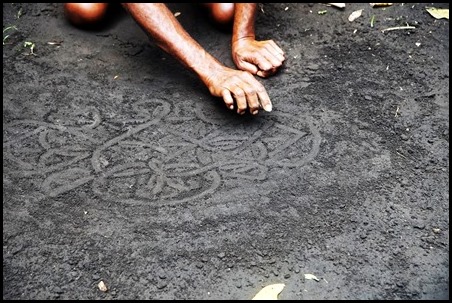

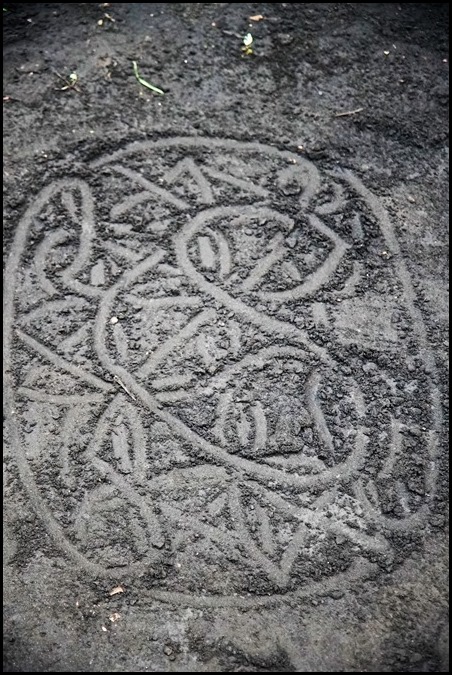
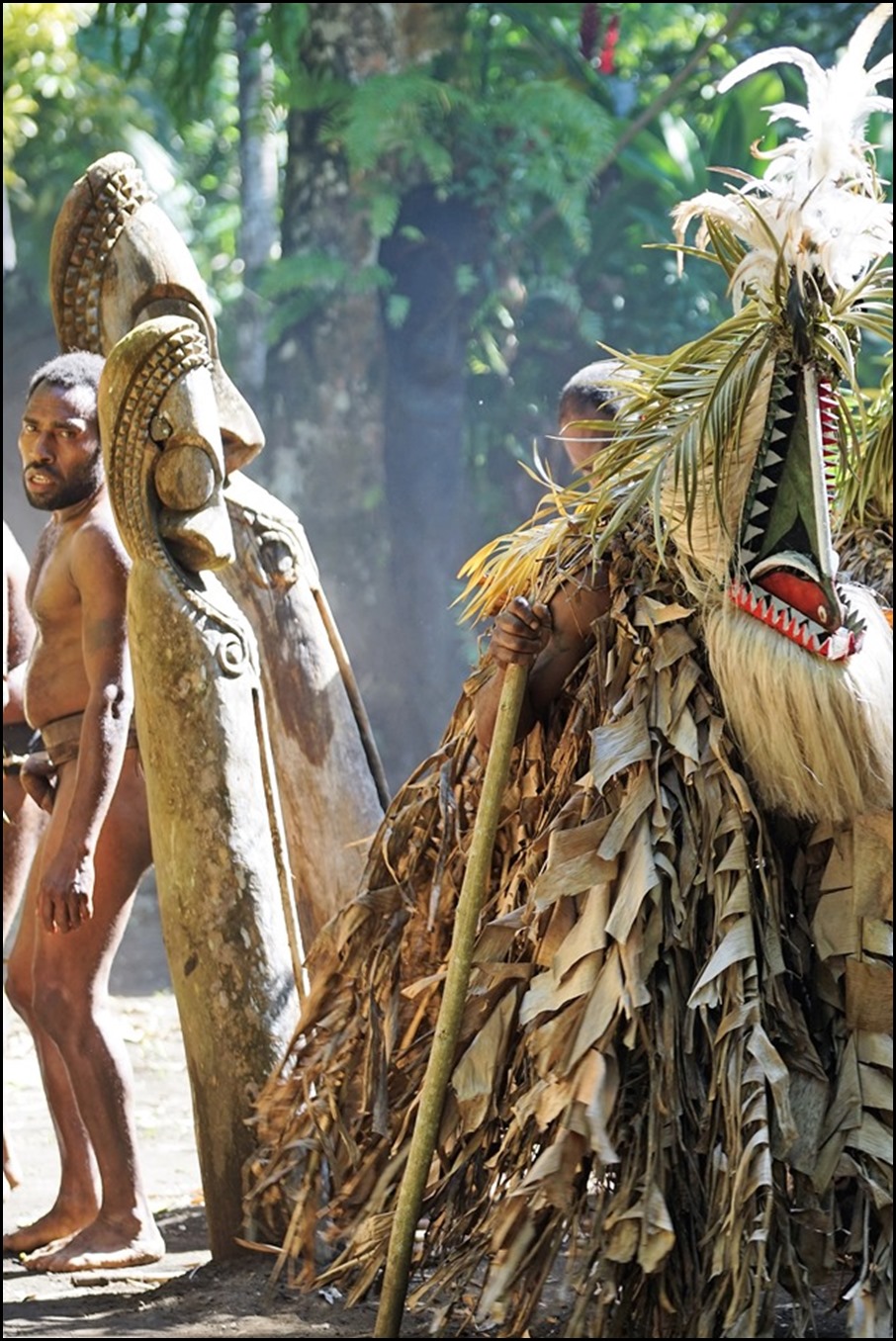
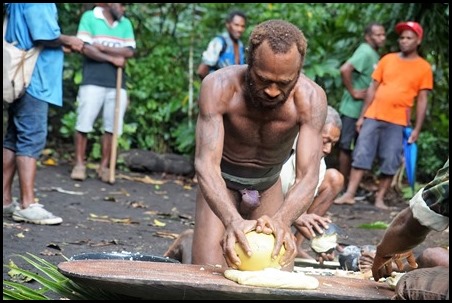
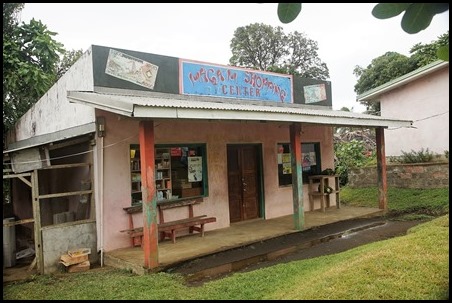
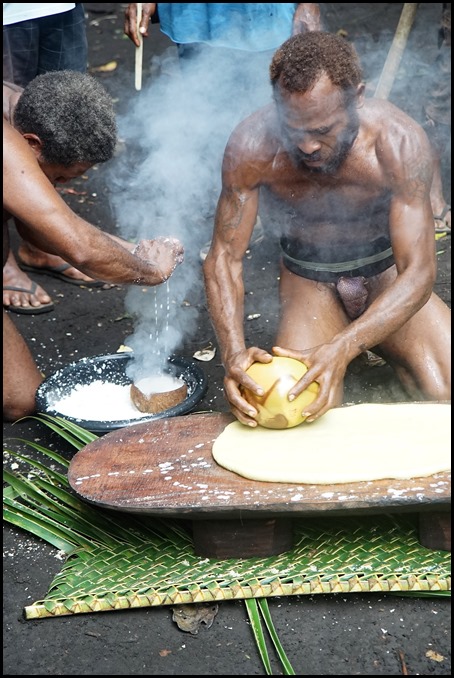
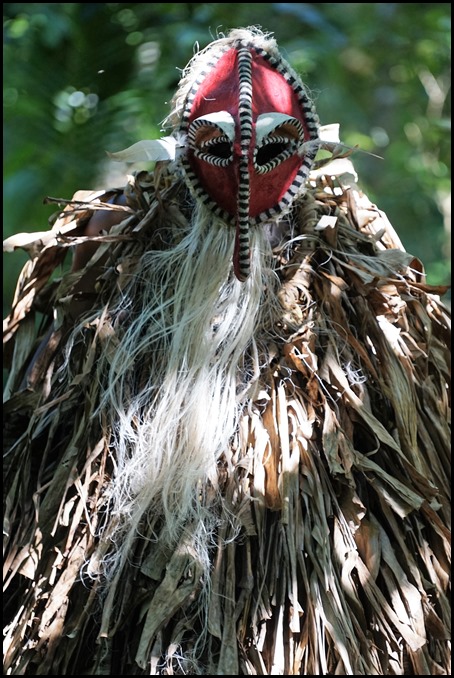
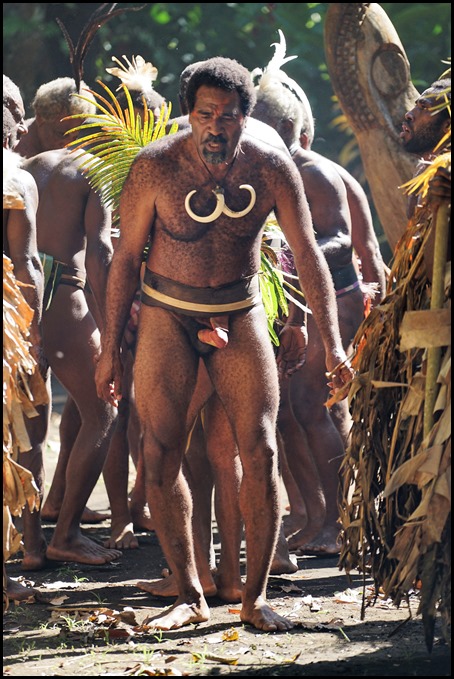
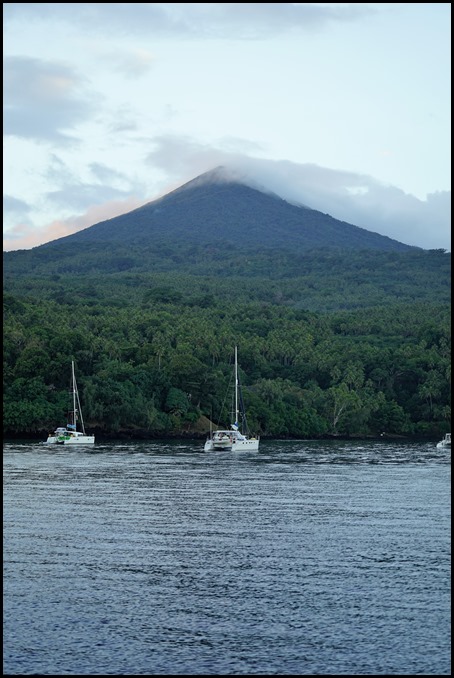
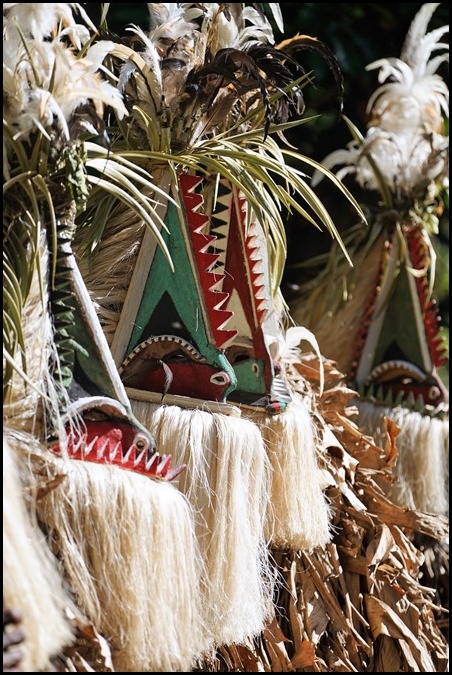
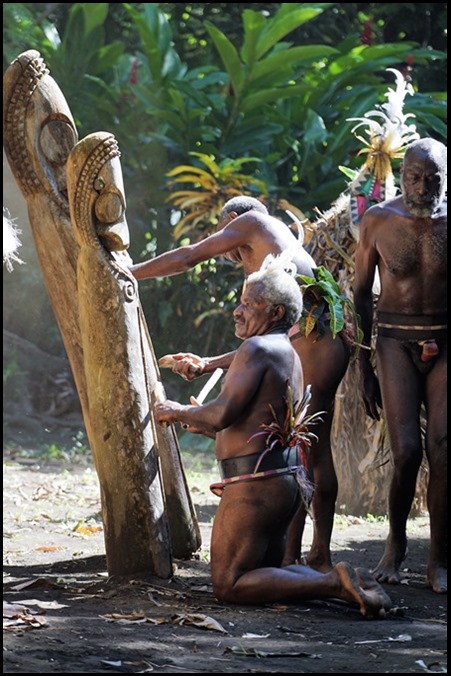
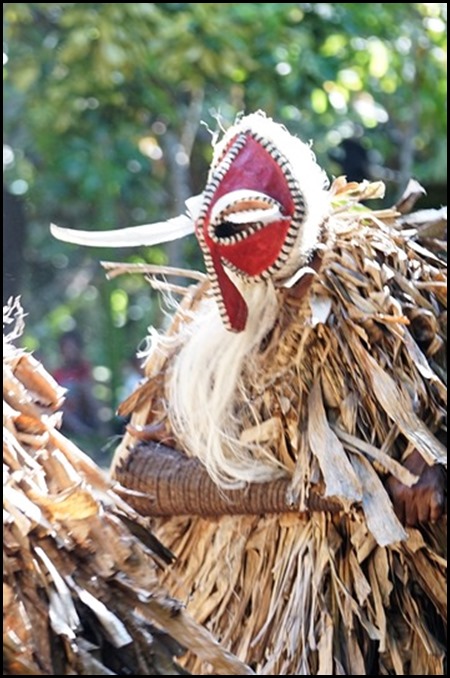
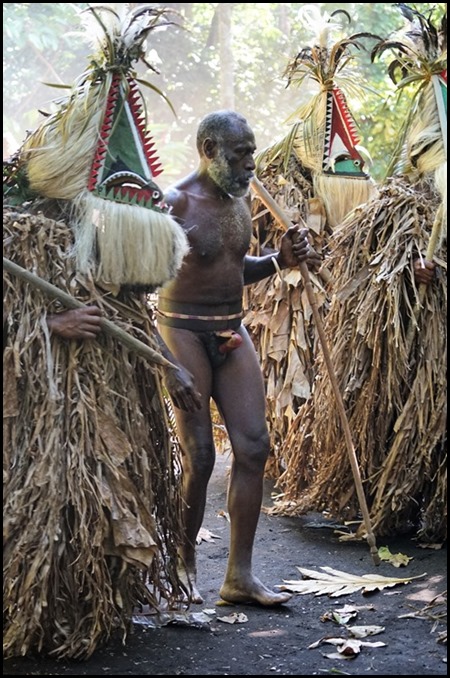
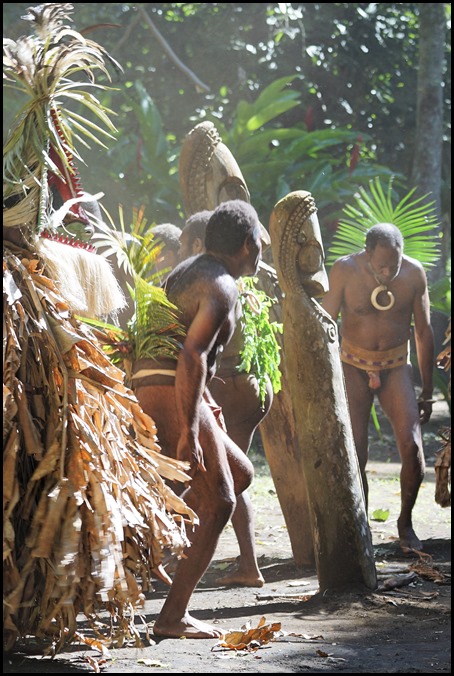
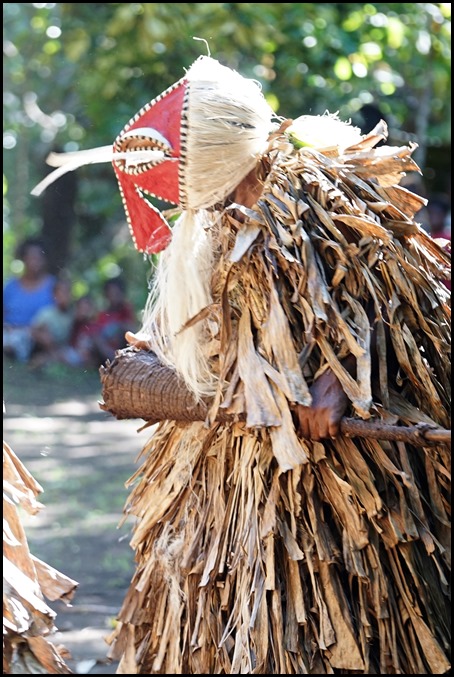
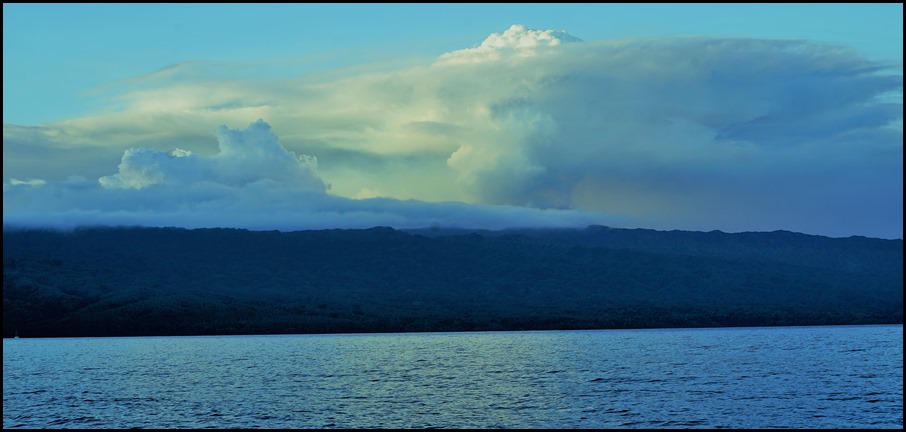
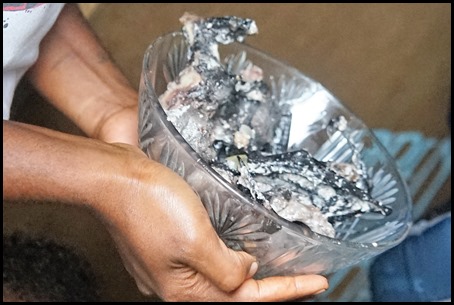
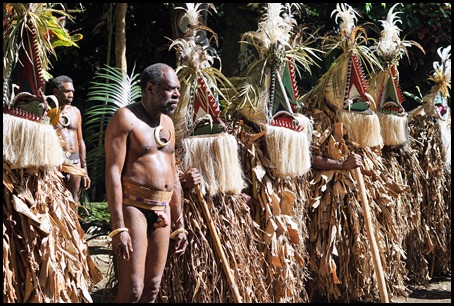
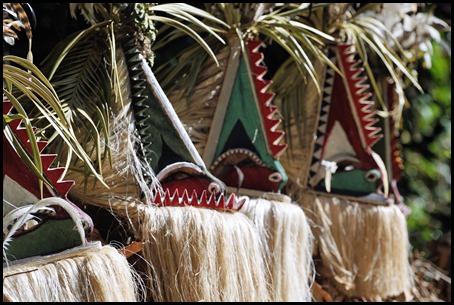
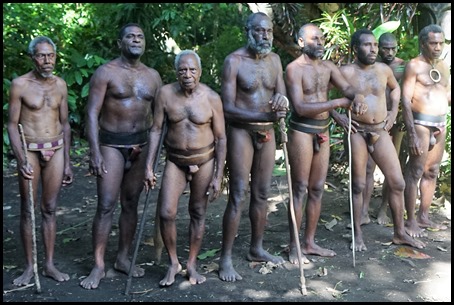
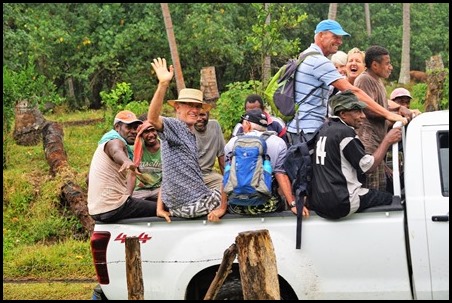
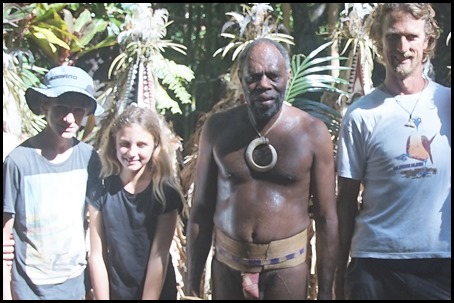
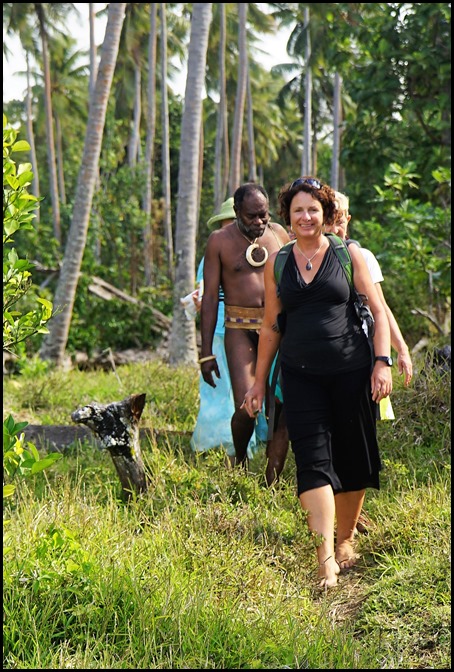
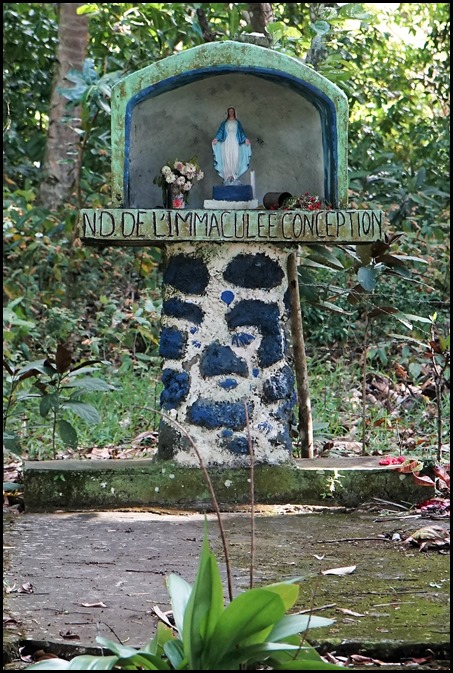
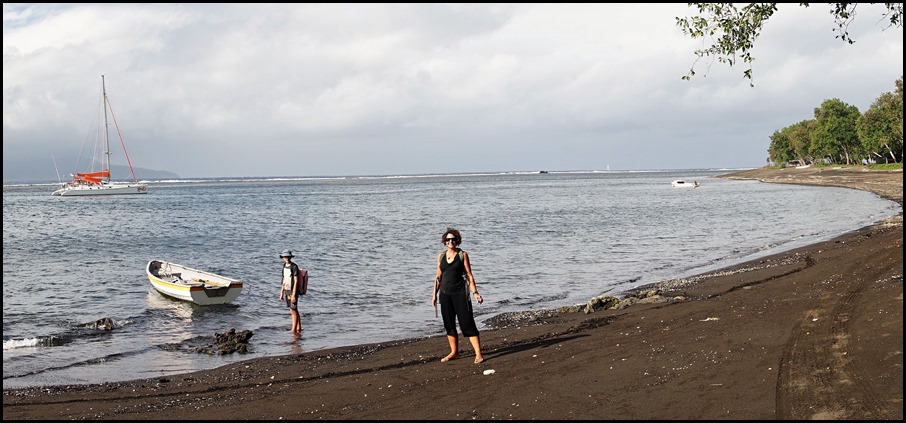
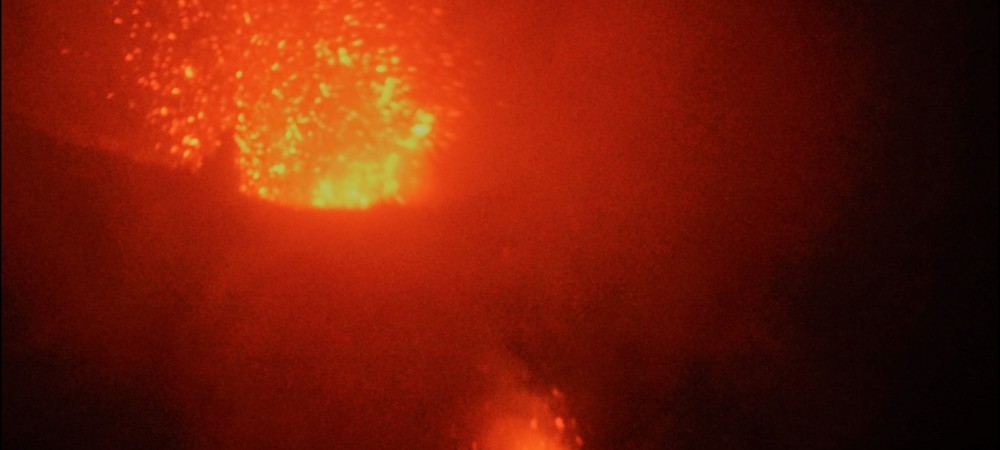
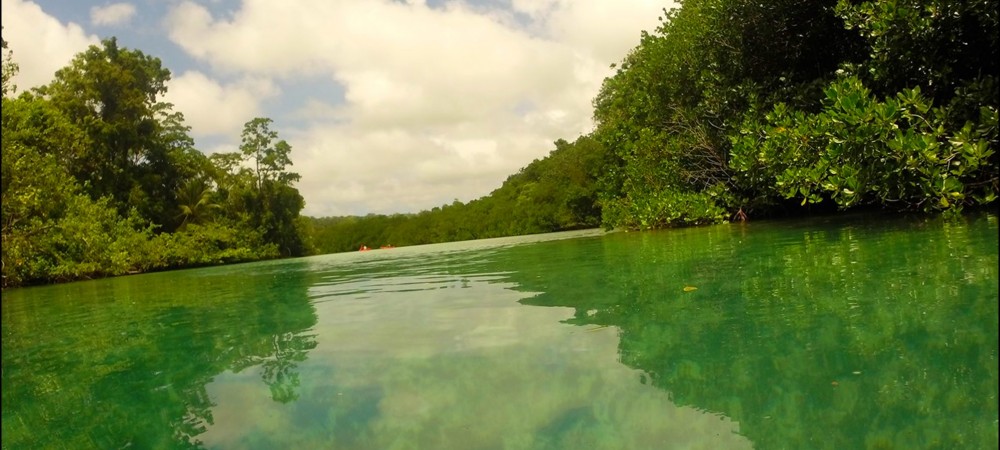
Beautiful pictures! I loved the designs they do on the black sand and the masks are awesome too.
Absolutely amazing adventure! Thank you for your stories!
Cool Greer! That’s your anthropology thesis right there. Great photos if an island I remember well. What a place!